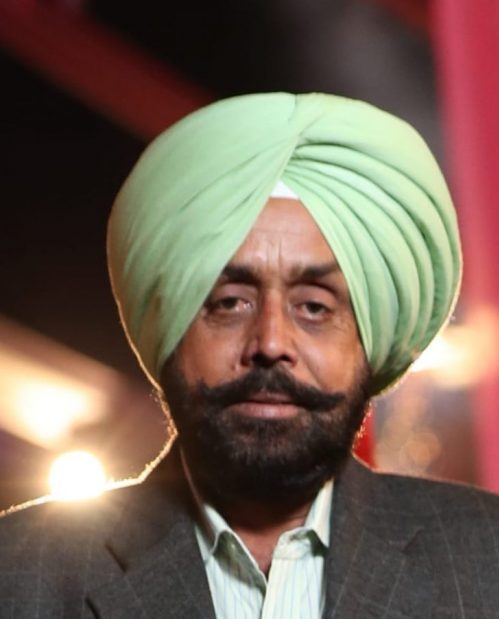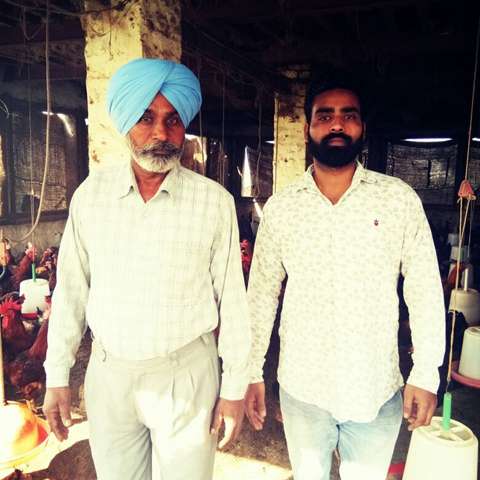Revolutionizing Agriculture: The Visionary Journey of Sikander Singh Brar
In the heartland of Punjab, where farming is not just a profession but a way of life, one man’s unwavering passion for innovation has brought about a transformative change in the agricultural landscape. Sikander Singh Brar, a pioneer in the realm of farming, has not only challenged conventional practices but has redefined the essence of agriculture itself. From humble beginnings rooted in a traditional farming family to becoming a beacon of modernity, Sikander Singh’s journey is a testament to the power of determination, innovation, and a relentless pursuit of excellence.
From Tradition to Innovation: The Early Years
Sikander Singh Brar’s journey began in Balihar Mahima, Bathinda, where he was born into a farming family deeply entrenched in traditional agricultural practices. His father, S. Buta Singh, was a stalwart in traditional farming techniques that had been passed down through generations. Yet, even amidst the familiarity of these age-old practices, young Sikander Singh harbored an unyielding desire to bring something new to the table.
“Why settle for the same crops year after year?” Sikander Singh pondered.
His inquisitive mind refused to succumb to the status quo. This innate desire to break free from convention, to reach for the skies from the earth to the heavens, became a guiding principle in Sikander Singh’s life. He understood that the urge to forge ahead, to innovate, should be the driving force across all fields of endeavor.
Cultivating Change: The Birth of Innovation
As Sikander Singh embarked on his academic journey, enrolling in Pharmacy at Sirsa in 1983, his foray into farming began to take shape. Supported by his elder brother, S. Samsher Singh, a Veterinary Inspector, he started to usher in a new era of farming in his village. The duo challenged the age-old practices of wheat and barley cultivation, which had long been the staple of the region.
Their motivation was clear: Why not infuse freshness and diversity into farming practices? This question echoed in Sikander Singh’s mind as he delved deeper into his newfound passion. After leaving his Pharmacy studies in 1984, he shifted his focus entirely to farming. And thus, the journey of transformation began.
Embracing Diversity: A New Chapter in Farming
Sikander Singh’s determination to explore the uncharted territory of farming led him to the cultivation of delicate and diverse crops. He took the plunge into cultivating tomatoes, an unconventional choice that would soon reap rewards. Through collaborations with various companies and the implementation of advanced techniques, his efforts bore fruit – both literally and metaphorically.
Yet, Sikander Singh’s innovation extended beyond crop selection. He held a staunch aversion to harmful pesticides and chemicals that wreaked havoc on the environment and human health. Opting for organic fertilizers and sustainable practices, he set an example that spoke volumes about his commitment to a holistic approach to farming. In 2005, they planted a kinnow orchard on five acres of land. In addition, they prepared wheat seeds from 15 acres of land and supplied seeds to the National Seed Corporation Limited, expanding their efforts to cultivate 50 acres of wheat seeds from 15 acres for the corporation.
Agricultural Revolution: An Inspiring Legacy
Sikander Singh Brar’s pioneering spirit did not go unnoticed. His successful endeavors earned him recognition from prestigious institutions like Punjab Agricultural University, Ludhiana. He emerged as a luminary in the agricultural landscape, sought after for his expertise, knowledge, and innovative methods. His insights were not confined to his fields alone; he generously shared his wisdom on television, radio channels, and workshops, inspiring fellow farmers on both local and global platforms.
His journey, however, was not just about accolades and achievements. It was about ensuring a sustainable future for agriculture. Sikander Singh was an ardent advocate for proper training and preparation before venturing into new farming practices. His emphasis on organic farming, minimal pesticide use, and the adoption of innovative methods echoed his unwavering commitment to the betterment of the land and its people.
The journey of Poultry farm
Sikander Singh Brar, established Sikander Poultry Farm in Balihar Mahima, Bathinda, in 1997. Starting as a modest venture with 5000 birds, it has evolved into a thriving enterprise that has a housing capacity of 35,000 birds of BV 300 breed. The Poultry farm is now managed by Amrinder Singh Brar who is a nephew of Sikander Singh Brar.
Amrinder Singh Brar holds a Masters in Agriculture from PAU and has been operating Sikander Poultry Farm in Bathinda since 2020. What started as a side business with 5000 birds has now grown to accommodate 27000 birds, including 15000 BV 300 red birds and 12000 BV 300 white birds. Under the guidance of his retired uncle, Nachhatar Singh Sran, a former Poultry Inspector, Amrinder modernized the farm to address challenges like water wastage and efficient feeding. By incorporating nipple waterers and feed trollies, Brar’s farm now operates semi-automatically, with human labor operating elevators to efficiently feed thousands of birds.
Vaccination is a crucial aspect of maintaining the health of the birds, with Brar administering 10 to 15 vaccinations to protect against diseases like CRD, Ranikhet, Fowlpox, and Coxy Variant. He emphasizes three primary factors for successful poultry farming: proper feed ingredients, constant water availability, and optimal temperature control. Despite challenges like fluctuating egg prices, Brar markets his products effectively through networking skills and has received recognition for his prominent poultry farm, as well as his ventures into horticulture and agriculture.
Amrinder Singh along with Sikander Singh are taking the Sikander Poultry Farm to new heights.
The Road Ahead: A Vision of Innovation
As Sikander Singh Brar looks to the future, his vision remains steadfast. He envisions a continued journey of growth, collaboration, and innovation. With his family by his side, he aims to explore uncharted territories, embracing change and transformation. His collaborations with experts and organizations stand as a testament to his humility and eagerness to learn.
Sikander Singh’s journey is a testament to the power of a single individual’s determination to create a better world. From a traditional farming family to a torchbearer of modern agricultural practices, he has illuminated the path of innovation for generations to come. His legacy will forever remind us that the desire to do something different can, indeed, compel humans to reach for the skies, turning dreams of innovation into tangible realities on the fertile soil of our land.
Message for farmers
For any new farmer aspiring to bring innovation in agriculture, it is crucial that they seek training and advice from relevant experts or organizations before initiating any new endeavors. After gaining the necessary knowledge, they can begin their work. Additionally, it is essential to minimize the use of pesticides and chemicals wherever possible and strive to adopt organic farming practices.








